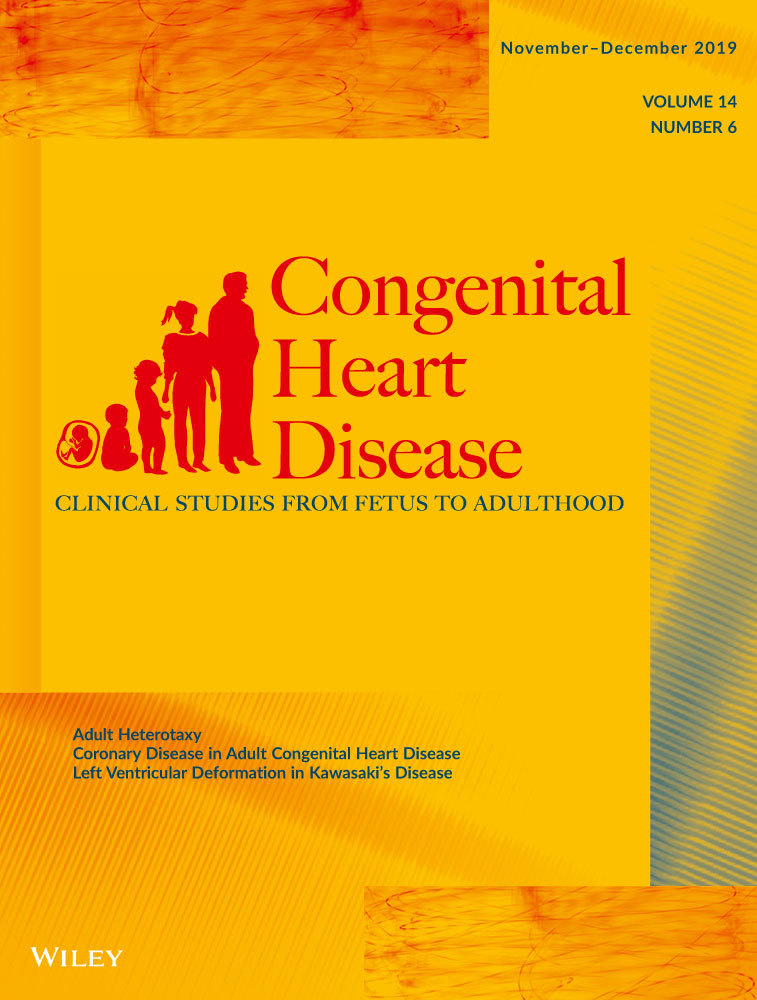Immediate and short-term effects of transcatheter device closure of large atrial septal defect in senior people
Abstract
Objectives
We sought to evaluate the safety and efficacy in improving cardiac function and functional capacity with device closure of large atrial septal defects (ASD) in senior adults.
Background
Atrial septal defect accounts for about 10% of all congenital heart disease. It still remains unclear whether large ASD closure in senior people should be performed or not. Hence we aim to prospectively assess the safety and clinical status of senior patients after transcatheter closure in large ASD.
Patients and interventions
This was a prospective study of all patients aged over 50 years who underwent device closure of a secundum large ASD between January 2013 and January 2018. Investigations including brain natriuretic peptide level, electrocardiography, chest X-ray, transthoracic echocardiogram, transesophageal echocardiogram, and 6-minute walk test were performed before and at 2 days and 4 weeks and 6 months after the procedure.
Results
Twenty patients (median age 68 years, 10 women) had transcatheter device closure of large ASD successfully. Median ASD size was 32 mm (range 30-39 mm). Median pulmonary artery pressure was 58 mm Hg (range 47-67 mm Hg). At 6 months, there was a significant change in right atrium size (P < .001) and right ventricle size (P < .01) and left ventricle size (P < .001) and also pulmonary artery pressure (P < .0001), New York Heart Association functional class improved (P = .03) in 19 patients and also significant improvement in 6-minute walk test distance (P < .001). There were no major complications.
Conclusions
Our data showed that large ASD closure at senior people results in satisfactory cardiac remodeling and cardiac function improvement.
CONFLICT OF INTEREST
None.




